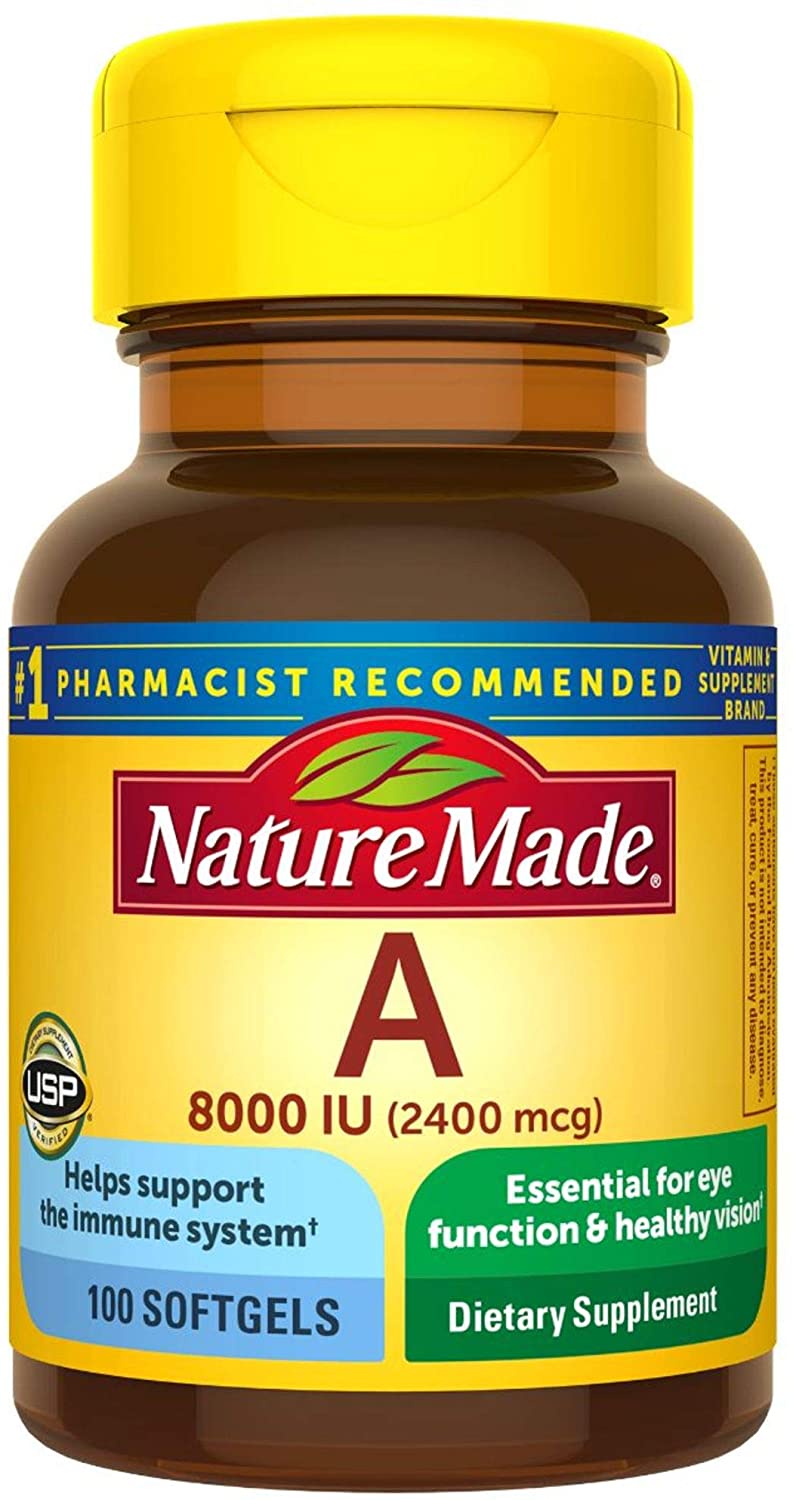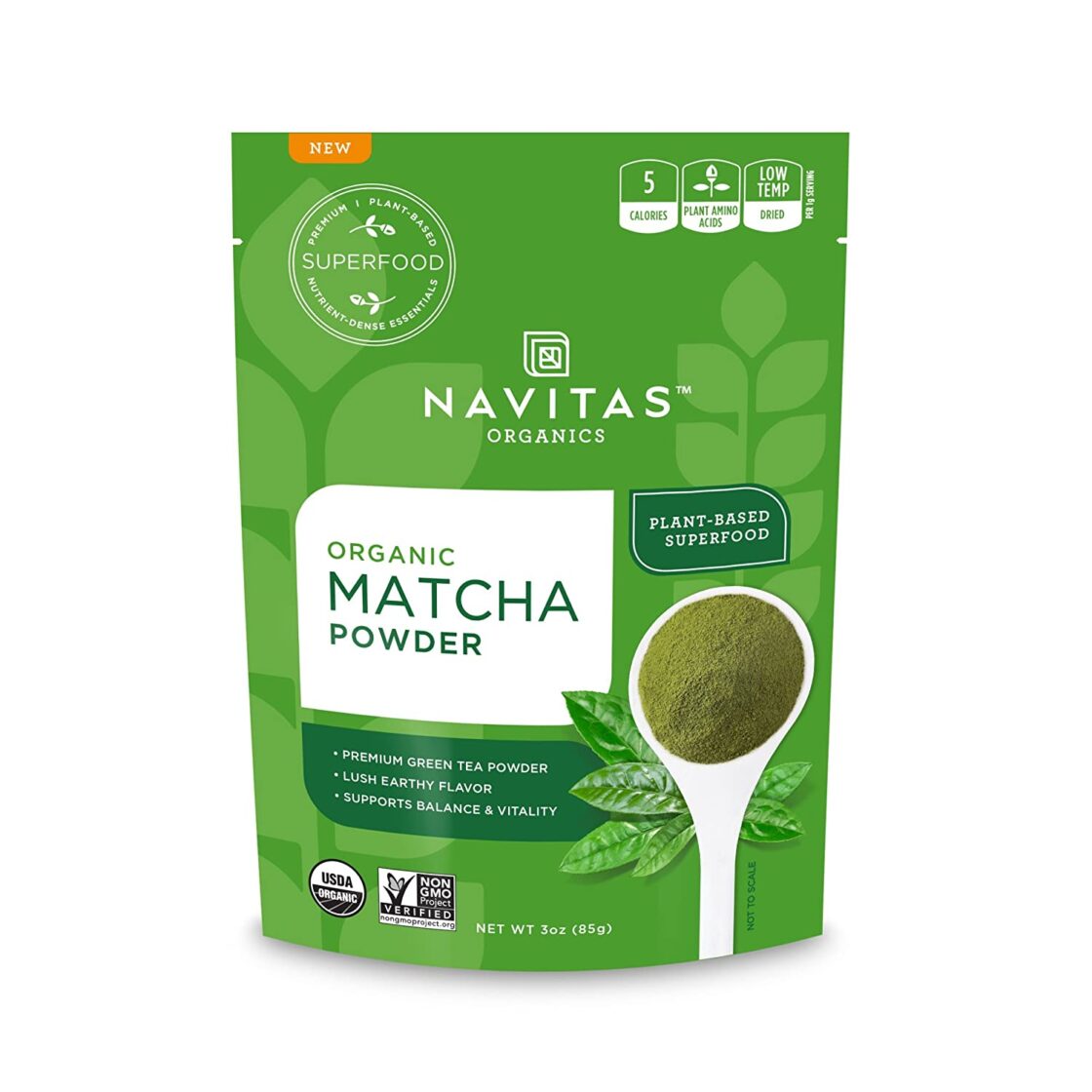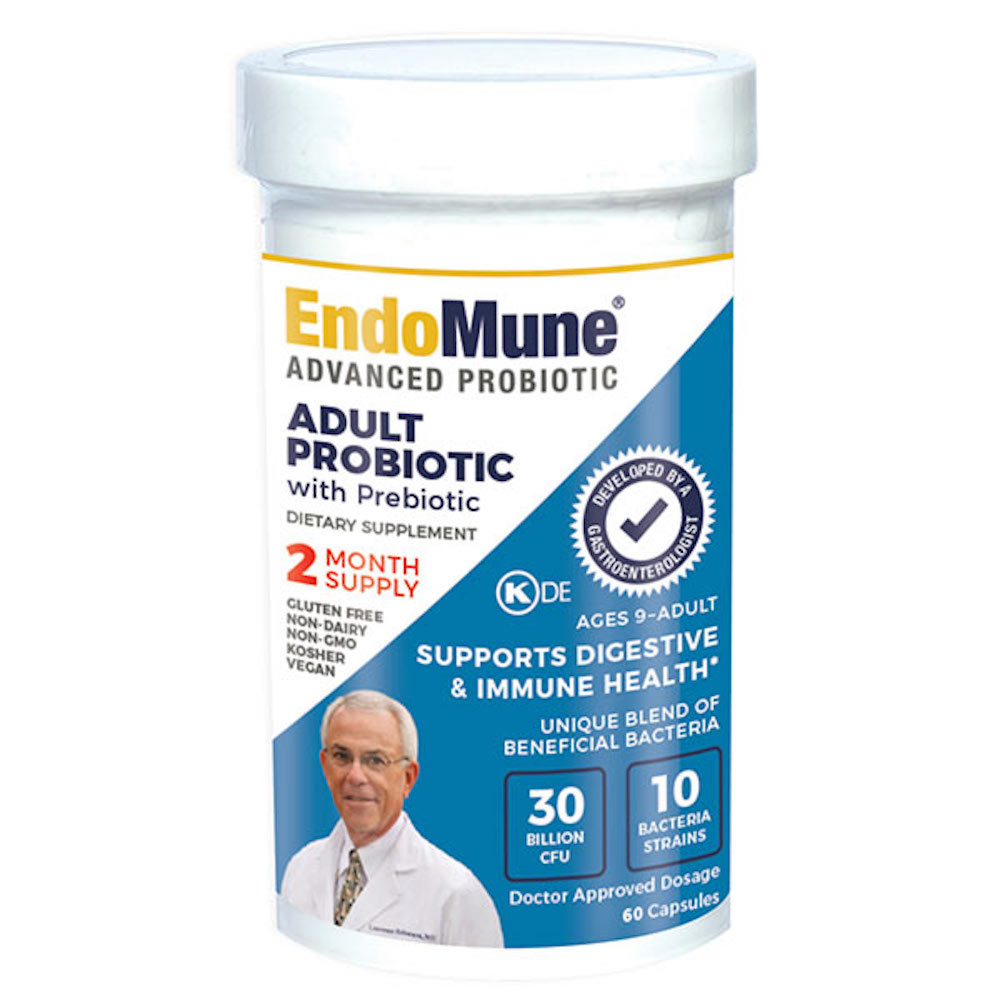10 Expert-Recommended Supplements to Consider During the COVID-19 Pandemic
Create a smart, intelligent immune system.

*Affiliate disclosure.
Living in the time of COVID, it’s more important than ever to support your health and wellbeing. We hope you’re taking time to take care of yourself (see our list of expert-backed tips for self-care during self-isolation). Maybe you’re getting wine and meal delivery at home, and you’re probably stocking up with long-lasting fruit and veg to stay healthy.
But you might also be needing a bit of extra help with physical and mental health: immunity, anxiety, and sleep have all taken a hit during these unprecedented times. That’s why our experts recommend you work in collaboration with your primary care physician to consider changes in your supplement regimen. You may want to consider having your doctor run some tests to get the real facts and uncover where you really are nutritionally deficient. Then, you’ll know what the best supplement investments are for you.
The below expert recommendations are for discussion purposes only and are not medical advice. They will not prevent the onset or cure COVID-19. To be safe and healthy during these uncertain times, please follow the CDC guidelines, wear a mask when you go out, remember to social distance, don’t touch your face, and wash your hands often.
Here’s our expert picks:

1. Vitamin D
Unless you’re lucky enough to have a big balcony or yard, you’re probably not getting as much sunshine as you usually would during the pandemic – which means taking a vitamin D supplement is probably a good idea.
Vitamin D is often dubbed the “sunshine vitamin” because, as Monica Auslander Moreno, MS, RD, LD/N, nutrition consultant for RSP Nutrition explains, “You require sunlight to activate the vitamin D you eat/drink into its active, bioavailable form.”
“It’s like electricity stored in a light switch – you need to turn the switch ON to get an effect.”
According to Dr. Sterling Petersen, DC, even in non-pandemic times, about half of Americans are “barely getting enough sun exposure to support healthy vitamin D levels.” And since vitamin D has vital functions related to immunity and serotonin, he says it’s an “utterly important vitamin” – especially now.
Vitamin D, explains Dr. Kelly Bay DC, CNS, CDN, registered dietician and certified nutrition specialist, plays a vital role in your body’s ability to fight off infection.
“In fact,” she says, “low levels of vitamin D can put you at increased risk of contracting the flu or a cold.”
“This vitamin is also linked to our mood due to vitamin D receptors located on the brain,” adds Lisa Richards, nutritionist and author of The Candida Diet. “A deficiency in this fat-soluble vitamin means these cells will die off and can lead to chemical and emotional imbalance in the brain.”
Not only can vitamin D support better immunity and mental health, but some research shows it may even prevent contracting the virus. However, further research needs to be done to truly verify this.
Dr. Paul Dean, board certified dermatologist and a former Epidemic Intelligence Service Officer of the CDC, calls attention to the link between vitamin D supplementation and a reduction in the risk of COVID-19 infections, as stated in a NCBI/NIH publication released in April 2020.
“The pandemic has been particularly harmful or deadly to older patients and people of color,” he says, noting that elderly people who remain indoors and those with darker pigmentation and, therefore, a reduced ability to synthesize vitamin D, are at a greater risk for deficiency.
“Vitamin D deficiency can be considered to be a co-morbidity for many people,” he continues.
Dr. Michael T. Murray, one of the leading authorities on natural medicine, echoes this analysis.
“Preliminary research is showing vitamin D3 is showing impressive effects in buffering the severity of COVID-19 infections,” he says. “When researchers analyzed vitamin D levels in the blood in patients with confirmed SARS-CoV-2 infection they found that lower levels were associated with more severe symptoms of COVID-19. Those patients with normal vitamin D levels rarely had severe symptoms and, in most cases, had only mild or no symptoms.”
While getting 20 to 30 minutes of sunlight is the ideal way to get more vitamin D, if that’s not possible for you while sheltering at home, Petersen recommends taking a supplemental combination of vitamin D3 and vitamin K2.
“Without the K2 combination,” he notes, “the body is unable to process the increased amount of calcium in the body into the right places, such as the bones, and instead may lead to arterial calcification.”
The plant-based D3/K2 formula from Smarter Nutrition contains 5,000 international units of D3, at the upper limit of Dean’s recommended daily 4,000 to 5,000. If you are considering supplementing with vitamin D, consult with your primary care physician to find out what’s right for you.

2. Vitamin A
Vitamin A may be an essential vitamin for these pandemic times.
“Vitamin A deficient individuals are more susceptible to infectious diseases, in general, but especially viral infections,” says Murray. “Vitamin A supplementation has been shown to produce significant benefits in improving immune function during viral infections, especially when fighting respiratory tract viruses in children.”
Generally, a dosage of 3,000 mcg (10,000 IU) for men and 1,500 mcg (5,000 IU) for women is safe. Murray warns, however, that women who may be pregnant or are lactating should avoid supplementing more than 1,500 mcg (5,000 IU) of vitamin A per day.
If you’re already taking a multivitamin, you may be getting vitamin A in the form of beta-carotene. If this is the case, Murray recommends supplementing with a retinol-based vitamin A, which, he notes, “has more direct anti-infective action.”
If you are considering adding vitamin A to your supplement regimen, consult with your primary care physician to discuss first, if you need it, and if you do, the proper dosage, which is important. There are consequences for over-supplementing. You may not need a vitamin A supplement if you eat a diet that’s rich in the mineral, including foods like cod liver oil, sweet potatoes, carrots, black eyed peas, beef liver, spinach, broccoli, sweet red peppers, mango, cantaloupe, dried apricots, herring, tomato juice and pumpkin.
Try Nature-Made softgels, made with fish liver oil.

3. Magnesium
Magnesium can have a natural anxiety-relieving effect, so it’s no wonder experts are recommending it during the pandemic.
“Magnesium deficiency can lead to symptoms of anxiety, depression, irritability, fear, insomnia, confusion, restlessness and memory loss – symptoms common to people with anxiety disorders,” says Murray. Supplementation, he adds, has been shown to help relieve symptoms of anxiety, including in one double-blind study where anxiety disorder sufferers given 300 mg of magnesium showed statistically significant reduction in symptoms over those given a placebo. Further studies and clinical trials need to be done to evaluate safety, efficacy and bioavailability, and dosage however.
About 80 percent of people are magnesium deficient, explains Lamia A. Kader, MD, due not only to poor nutritional habits but also to the fact that there simply isn’t enough magnesium in our depleted soils. Magnesium supplementation, then, is crucial (you can read more about magnesium deficiency signs here). This is another mineral your primary care physician can test you for a deficiency. Individuals who may be more susceptible to low magnesium levels are athletes, since it’s lost through sweat, and the elderly.
Bear in mind, however, that not all magnesium supplements are the same. Be sure to pick one with different forms of the mineral. NOW’s Magnesium Transporters unites five different sources, including highly-absorbable magnesium citrate. Consult your personal physician for recommendations and dosage.

4. L-Theanine
This active compound in green tea can help with increased anxiety due to the pandemic while improving mood and cognition. According to Bay, it not only helps increase the relaxing neurotransmitter GABA and aids in reducing stress hormones, but it has been shown in studies to help increase sleep quality and promote anxiety reduction.
“When matcha/green tea is utilized with high stress tasks, it can reduce anxiety and increase focus,” explains Dr. Christian Gonzalez. “L-theanine also increases alpha brain waves which are mainly created during meditation and hyper-present states. This tea can also improve sleep, which in turn can improve your overall mood.”
The findings of a November 2019 Systematic Review suggest that supplementation of 200-400 mg/day of L-THE may assist in reducing stress and anxiety for those in stressful situations. Further research needs to be done to better understand its efficacy and best use.
Talk to your physician about recommended supplementation. You can also try sipping organic green tea or a vegan matcha latte to reap these benefits naturally.

5. Vitamin C
Vitamin C is essential to a healthy working immune system. While the vitamin may not reduce your risk of contracting infections and viruses – including COVID-19, it may help reduce the duration of symptoms if you’ve taken it regularly before falling ill.
“Vitamin C is needed by your immune system to function properly, so making sure that your vitamin C status is up to par is a great way to support your immunity and address your antioxidant status,” says Bay.
That said, a word of warning: while supporting your immunity is a great way to prevent COVID-19, infectious diseases physician Dr. Ceppie Merry warns that “once people develop symptoms or have a positive C19 test, it is essential to stop all immune boosters.”
“The real pathology during C19 is not caused by the virus itself,” she explains, “but is caused by an over reactive inflammatory response. Hence it is important to stop all immune boosters at this time.”
If you are in the clear, choose an organic vitamin C supplement like Pure Synergy to protect yourself from this and other infections.
According to Examine.com, there is currently a clinical trial of IV vitamin C for severe COVID-19-induced pneumonia underway, but results have yet to be published. More studies will likely be required for it to be confirmed as a treatment.

6. Zinc
Zinc is another essential for a healthy immune system. Like the other recommendations on this list, it does not prevent or treat COVID-19, but it can help support general immunity and wellbeing.
“Zinc has been talked about lately and for a good reason,” says Petersen. “It is a vital mineral that has recently been touted for its ability to reduce viral replication in order to reduce the impact a virus might have on someone’s system.” Note that research is preliminary and further studies need to be conducted.
Choose bioavailable zinc mono methionine, like in Sandhu Herbals’ vegetarian zinc supplement.

7. Melatonin
Melatonin is a hormone that your body produces to naturally let you know it’s time to go to sleep. But with the stress, anxiety, and lack of exercise that the pandemic is causing, sometimes our melatonin production is a bit out of whack, which means that poor sleep ensues – as does increased risk of infection.
“Interestingly in Wuhan China where COVID-19 began, pregnant mothers in their 3rd trimester and children seemed to be almost immune to the virus,” explains Petersen. “They have since made an association with the robust melatonin levels in both those groups.”
While Murray stresses that it’s important to practice good sleep hygiene first and foremost, by exercising, cycling down in the evenings by reducing light and screen time, and reducing stimulants and sleep disruptors, you can also reset your biorhythm by taking 3 mg of methylcobalamin upon waking and 3 mg of melatonin 30 minutes before bedtime.
“Methylcobalamin is the body’s active form of vitamin B12,” explains Murray. “Simply taking methylcobalamin (3 mg daily first thing in the morning) has often led to improved sleep quality, increased daytime alertness and concentration, and improved mood.”
There is some early research on melatonin and COVID. This article published in Science Direct summarizes the potential benefits. It states, “There is significant data showing that melatonin limits virus-related diseases and would also likely be beneficial in COVID-19 patients. Additional experiments and clinical studies are required to confirm this speculation.” There are two clinical trials underway that will test melatonin’s efficacy in alleviating COVID-19 symptoms.
Take non-GMO methylcobalamin and melatonin for one week to reset your sleep schedule.
Buy non-GMO methylcobalmin and melatonin now.

8. Folate
Folate is a B vitamin which, Ellen Ellingsworth, MS, RD, CD, CLC, registered dietitian and nutrition advisor to Parenting Pod explains, “contributes to the synthesis of serotonin, dopamine and norepinephrine – all three neurotransmitters can affect anxiety/depression.”
Folate can also help aid in improving sleep, as it helps to produce melatonin naturally.
“If you are low in folate,” says Ellingsworth, “this could be affecting your melatonin production, causing issues with sleep.”
Take bioavailable methylfolate like this vegan chewable from Bluebonnet.

9. N-acetylcysteine (NAC)
This mouthful of an amino acid has been found by some recent research to have the potential to reduce the severity of infection with influenza – promising in the current climate.
Murray is recommending most people take NAC, which is used in the body to form glutathione – the major antioxidant for the entire respiratory tract and lungs.
“It has been used orally with great success as well as in hospitals through breathing tubes to help people dealing with inefficient or thick mucus in acute and chronic lung conditions such as emphysema, bronchitis, chronic asthma, and cystic fibrosis,” he explains.
For protection and supporting glutathione levels in the lungs, the dosage is generally 500 to 1,000 mg daily; this supplement from NOW contains the full 1,000 in one dose. Consult with your primary care physician to see if this supplement and recommendation is right for you.

10. Probiotics
Ensuring we’re keeping our gut microbiome balanced is more important than ever.
“Our guts house 70 percent of our immune system,” explains Lawrence Hoberman, M.D., board-certified in both internal medicine and gastroenterology. “A healthy balance of gut flora crowds out toxic bacteria that could otherwise create inflammation, compromise the immune system and lead to disease.”
According to Kader, stress does a number on our gut microbiota.
“Whenever this happens, there is a reaction in the body that transfers to the brain and changes the way we feel,” she says. This can lead to an unfortunate cycle of anxiety.
Hoberman recommends a probiotic containing at least 20 billion CFUs of multiple bacteria strains that include immune strengthening Lactobacillus and Bifidobacterium cultures. EndoMune Advanced Probiotic for Adults contains ten different strains and prebiotic Frutooligosaccharides (FOS) to stimulate bacteria vitality. Consult with your physician to see if this is right for you.
Please note, when making changes to your health care routine please get professional advice from your primary care physician. The above conversation is for discussion purposes only and is not medical advice. There isn’t a dietary supplement on the market that can cure, treat, or prevent COVID-19 or any disease. It is important to understand that with the ongoing pandemic, there is no one supplement, diet, or lifestyle changes, other than what’s recommended by the CDC including social distancing, hand washing, and hygiene practices, that can prevent you from being infected with the COVID-19 virus. There is no current research that supports the use of dietary supplements to protect you from the COVID-19 virus infection.
Related on Organic Authority
5 Pro Tips from Jillian Michaels to Thrive In Challenging Times
3 Things To Do When Yoga and Meditation Aren’t Working
4 Grow Your Own Garden Kits to Make Quarantine Gardening Easy
*Note! This article contains affiliate links that are independently sourced and vetted by our editorial team which we may earn a commission on. This helps us reduce the number of ads we serve on Organic Authority and help deliver you a better user experience. We are here to help you navigate the overwhelming world of consumer products to source and uncover thoughtfully made, conscious clean products for you and your family.










